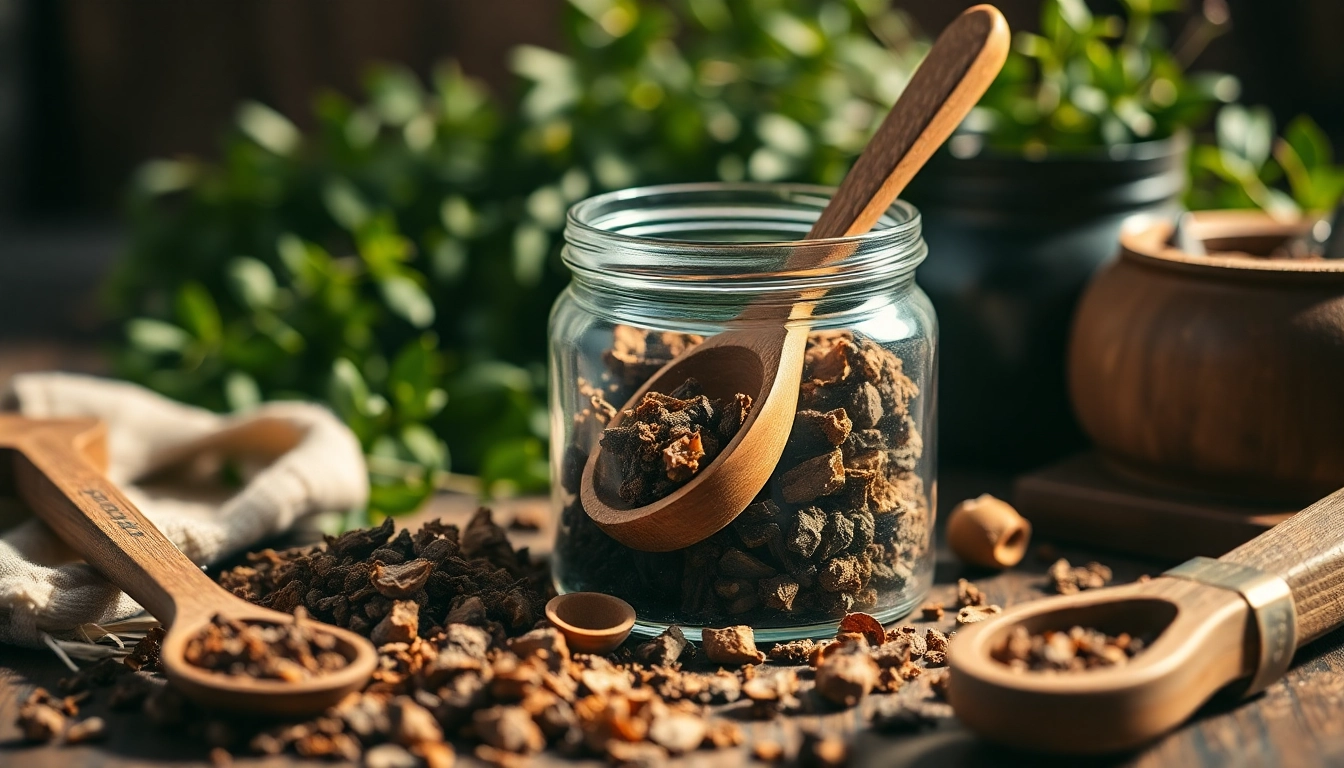Understanding Benjoin: Origins and Properties
Benjoin, also known as benzoin resin, has a storied history as a valued substance in various cultures. Derived from the bark of Stryax benzoin trees, primarily found in Southeast Asia, it has been utilized for centuries not only for its aromatic properties but also for its health benefits. This resin is often used in incense and essential oils, serving as a bridge between the natural world and aromatherapy. As we explore the multifaceted aspects of benjoin, we aim to enhance your understanding of its origins, properties, and how you can incorporate it into your own wellness routine. For further insights, visit the Benjoin section of our website.
The Historical Significance of Benjoin
Historically, benjoin resin has made its mark across various civilizations. Ancient Egyptians regarded it as a sacred substance, using it in religious ceremonies and embalming practices. The aromatic smoke produced from burning benjoin was believed to carry prayers to the divine. In Asia, particularly within Chinese medicine, benzoin has been used for its therapeutic properties, such as soothing respiratory issues and skin ailments. Its introduction to Europe occurred in the Middle Ages, where it was incorporated into medicine and used in the production of perfumes.
Benjoin’s historical journey reflects the adaptability and continual discovery of its benefits. With a rich background that interweaves medicinal and spiritual contexts, it has solidified its role in holistic practices globally.
Chemical Composition and Benefits of Benjoin
The chemical composition of benjoin resin is intricate, comprising a complex mixture of compounds, including benzoic acid, benzyl alcohol, and various essential oils. These components contribute to its distinct aroma and therapeutic effects. The resin possesses antiseptic, astringent, and soothing properties, making it a valuable agent in both traditional and modern practices.
The specific benefits of benjoin include:
- Antimicrobial Properties: Its ability to fight infection makes it a staple in herbal remedies.
- Skin Health: It is widely used for treating cuts, wounds, and other skin conditions due to its astringent properties.
- Respiratory Support: The resin can help alleviate congestion and respiratory distress when used in inhalation therapies.
- Emotional Balance: In aromatherapy, the soothing scent is believed to help reduce anxiety and promote relaxation.
How to Identify Quality Benjoin Products
When searching for high-quality benjoin products, it is essential to ensure authenticity and purity. Here are a few tips to help you identify quality benjoin:
- Source: Purchase from reputable suppliers who provide information about the origin and methods of extraction.
- Appearance: Genuine benjoin resin should be amber-colored, brittle, and have a pleasant, sweet aroma. Avoid products that have artificial fragrances or additives.
- Check for Certification: Look for transparency regarding the product’s testing, quality assurance measures, and certificates of authenticity.
- Price Point: High-quality benjoin may be more expensive due to the meticulous harvesting and production processes, so be cautious of unusually low prices.
The Therapeutic Uses of Benjoin in Aromatherapy
Aromatherapy harnesses the power of natural fragrances to enhance emotional and physical well-being. Benjoin essential oil, derived from benjoin resin, holds a significant place within this practice due to its soothing and balancing effects.
Benefits of Benjoin Essential Oil
The benefits of benjoin essential oil extend beyond its aromatic qualities. Some of the most notable effects include:
- Stress Relief: The calming aroma can help to alleviate stress and anxiety, making it an excellent choice for meditation and relaxation.
- Respiratory Health: Using benjoin in diffusers can assist with respiratory issues, including coughs and bronchitis, by clearing congestion.
- Skin Nourishment: Its astringent properties make it beneficial for oily and acne-prone skin when included in skincare formulations.
- Enhanced Focus: The grounding effects of benjoin oil can aid in improving concentration during tasks that require mental clarity.
Methods of Using Benjoin in Aromatherapy
There are several ways to incorporate benjoin into your aromatherapy routine:
- Diffusing: Add a few drops of benjoin essential oil to an essential oil diffuser to fill your space with its calming aroma.
- Topical Application: Dilute benjoin oil in a carrier oil and use it on pulse points or in massage for its therapeutic benefits.
- Bath Soaks: Mix several drops of benjoin oil with Epsom salts for a soothing and relaxing bath.
- Inhalation: Inhale the aroma directly from the bottle or mix it with warm water for steam inhalation to promote respiratory health.
Safety and Precautions with Benjoin Use
While benjoin is generally safe for most individuals, there are precautions to consider:
- Patch Test: Before applying topically, perform a patch test to check for allergic reactions.
- Pregnancy and Nursing: Pregnant or nursing women should consult a healthcare professional before using benjoin.
- Medical Conditions: Individuals with specific medical conditions should seek medical advice before use, especially those with respiratory issues.
Integrating Benjoin into Your Daily Life
Incorporating benjoin into your daily routine can enhance both your physical health and emotional well-being. Here are some practical ways to do so.
Recipe Ideas Featuring Benjoin
Benjoin can be integrated into various culinary recipes, providing unique flavors and health benefits. Here are a few ideas:
- Herbal Tea: Steep dried benjoin or add a drop of benjoin essential oil to your favorite herbal tea for an aromatic twist.
- Baked Goods: Infuse the essence of benjoin into cookies or cakes for an exotic flavor profile.
- Homemade Confections: Utilize benjoin in fudge or chocolate truffles for a luxurious and aromatic dessert.
Crafting Homemade Products with Benjoin Resin
Creating your own products with benjoin resin can be a rewarding experience. Here are some ideas:
- Incense: Combine benjoin resin with other dried herbs and spices to create homemade incense sticks or cones.
- Essential Oil Blends: Experiment with blending benjoin oil with other essential oils like lavender or sandalwood for custom aromatherapy blends.
- Skincare Products: Incorporate benjoin into lotions or creams to enhance their healing properties.
Ritual Uses of Benjoin Across Cultures
Traditionally, benjoin has been utilized in various cultural rituals, including:
- Spiritual Cleansing: Many cultures burn benjoin resin during purification ceremonies and rituals.
- Protective Talismans: Some traditions employ benjoin to ward off negative energies and promote positive vibes.
- Gratitude Practices: The calming scent of benjoin enhances meditative practices focused on gratitude and mindfulness.
Benjoin in Traditional Medicine
Benjoin has a long history within various traditional medicine practices, hailed for its multitude of health benefits.
Folk Remedies and Benjoin
In traditional folk medicine, benjoin has been utilized in countless remedies, such as:
- Wound Healing: Many cultures apply it topically to heal cuts and bruises.
- Respiratory Relief: It is widely used in steam inhalations and herbal preparations to treat coughs and colds.
- Digestive Aid: Some herbalists utilize benjoin to stimulate digestion and relieve gastrointestinal discomfort.
Scientific Research on Benjoin’s Health Benefits
Recent studies have begun to validate many of the traditional uses of benjoin. Research has explored:
- Antimicrobial Activity: Studies indicate that benjoin possesses significant antimicrobial properties, showing effectiveness against various fungi and bacteria.
- Anti-inflammatory Effects: Investigations have suggested that benjoin can reduce inflammation, which might aid conditions like arthritis when applied topically.
- Stress and Anxiety Relief: Some clinical trials demonstrate improvements in stress levels and emotional well-being after benjoin is used in aromatherapy.
Comparisons with Other Herbal Resins
Benjoin stands out among other herbal resins like myrrh and frankincense. While each has unique properties, here’s how they compare:
- Ingredient Composition: Benjoin contains higher levels of certain aromatic compounds, giving it a sweeter scent compared to myrrh’s earthy aroma.
- Therapeutic Use: Myrrh is often employed for more severe skin ailments, whereas benjoin serves as an excellent choice for respiratory benefits.
- Psychological Effects: Benjoin is often considered more effective for emotional balance and calming effects when compared to other resins.
The Future of Benjoin in Wellness Practices
The shift towards herbal medicine reflects growing consumer interests in natural remedies and holistic health. Benjoin is positioned to contribute significantly to this trend.
Trends in Herbal Medicine and Benjoin
As wellness practices evolve, there has been a noticeable embrace of herbal medicine, including:
- Sustainability: A demand for sustainably sourced ingredients is rapidly increasing, making natural resins like benjoin appealing.
- Integrated Approaches: Modern medicine is increasingly incorporating holistic elements as patients seek natural alternatives.
- Research and Education: Ongoing studies into the health benefits of benjoin further validate its status as a vital component in herbal practices.
Market Demand and Benjoin Procurement
The market for natural wellness products is expanding, leading to increased demand for authentic benjoin. Factors influencing this trend include:
- Consumer Preferences: A shift towards natural and organic products drives an increase in the availability of benjoin in wellness circles.
- Product Diversification: The emergence of products like benjoin-infused skincare and wellness formulations creates new avenues for procurement.
- Global Markets: Increased global distribution channels further democratize access to quality benjoin products.
Sustainable Practices for Harvesting Benjoin
As with many natural resources, sustainable harvesting practices for benjoin are crucial to preserve both the environment and the communities that rely on this resin. Sustainable practices include:
- Community Support: Working with local communities to ensure fair trade practices and shared benefits from harvesting.
- Regulatory Compliance: Adhering to local laws and guidelines related to natural resource management.
- Reforestation Initiatives: Supporting programs that replenish forests and promote biodiversity.



